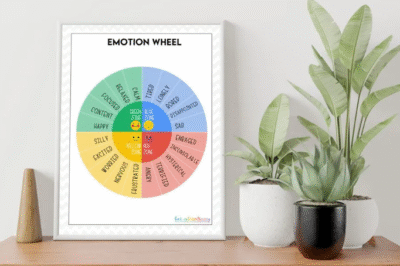Emotional awareness is the ability to recognize, understand, and manage our feelings in a healthy and constructive way. It is a crucial skill that can enhance personal well-being, strengthen relationships, and reduce stress. Encouraging emotional awareness is beneficial for both children and adults, helping them navigate daily challenges and respond thoughtfully to different situations.
Understanding Emotions
The first step in building emotional awareness is learning to identify and understand your emotions. Emotions can sometimes feel overwhelming or confusing, but acknowledging them is essential. Paying attention to your feelings allows you to recognize patterns and triggers in your emotional responses. Simple practices like journaling or taking a few minutes each day to reflect on how you feel can provide clarity and insight into your emotional state. Naming your emotions, such as frustration, joy, or anxiety, helps you gain control over how you respond rather than reacting impulsively.
The Role of Mindfulness
Mindfulness is a powerful tool in developing emotional awareness. It involves being fully present in the moment without judgment. When you practice mindfulness, you learn to observe your emotions as they arise without immediately reacting. Mindful techniques like deep breathing, guided meditation, or even mindful walking can reduce emotional stress and create space for thoughtful responses. Over time, mindfulness can help you develop a calmer, more balanced approach to emotions and daily challenges.
Expressing Emotions Effectively
Recognizing emotions is only part of emotional intelligence. Equally important is learning to express emotions in a clear, respectful, and constructive way. Using statements like “I feel upset because…” or “I feel happy when…” communicates your feelings without creating conflict. Clear communication fosters understanding and empathy, allowing relationships to grow stronger and more supportive. Developing this skill encourages open dialogue and helps prevent misunderstandings.
Encouraging Emotional Awareness in Others
Supporting others in recognizing and expressing their emotions creates a positive environment for growth. Whether at home, school, or work, asking questions like “How are you feeling today?” or validating someone’s feelings by saying “It is okay to feel that way” encourages openness and trust. Modeling emotional awareness in your own behavior sets a positive example and allows others to feel comfortable exploring their emotions. By fostering a culture of understanding and empathy, you contribute to healthier relationships and emotional development in your community.
Practical Strategies to Build Emotional Awareness
-
Reflect on your emotions daily by setting aside a few minutes to consider how you feel and why.
-
Keep a journal to track your emotions and identify patterns over time.
-
Practice mindfulness exercises regularly to remain present and manage stress.
-
Use clear and respectful language when sharing emotions with others.
-
Support friends, family, and colleagues in recognizing and expressing their feelings.
-
Recognize that all emotions are valid and provide information about your needs and experiences.
-
Engage in activities that promote emotional balance, such as physical exercise, creative hobbies, or social interaction.
Benefits of Emotional Awareness
Developing emotional awareness offers several benefits. It improves decision-making by helping you respond rather than react. It enhances relationships by fostering empathy, understanding, and trust. It also reduces stress and promotes mental well-being by allowing you to process emotions constructively. Over time, cultivating emotional awareness contributes to resilience, self-confidence, and overall life satisfaction.
Conclusion
Encouraging emotional awareness is a valuable practice for personal growth and healthy relationships. By understanding and expressing emotions thoughtfully, you create a more balanced, empathetic, and supportive environment for yourself and those around you. Small daily practices, such as mindfulness, reflection, and open communication, can lead to meaningful improvements in emotional well-being and overall quality of life. Developing emotional awareness is a lifelong journey, and each step brings greater clarity, connection, and inner peace.


